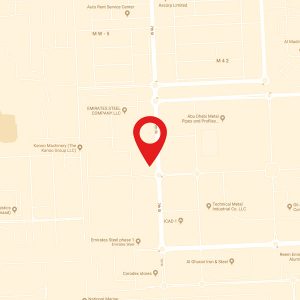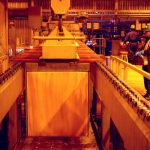Celebrating 10th Anniversary in 2018
Amer Kakish, CEO of Ittihad International Investment, on 10 years of operations, Emiratization, and how technology is changing the sector.
As you celebrate your 10th anniversary, what have been the major highlights in the fields of privatized government services, medical facilities, industrial production, and port operating business that Ittihad is involved in?
Following a rough start in 2008 due to the global financial crisis, we managed to rationalize our portfolio, divesting a number of our non-core businesses and focusing on growing our investments in export manufacturing industry and privatized government services. We also developed strategies to nurture our investments in healthcare and education sector. Such strategy has yielded its fruits and we managed to grow Ittihad revenues by tenfold since its inception. Our exports today cover more than 32 different destinations and we will continue to grow in the coming years. Ittihad is now the main shareholder and operator of over 26 companies categorized into four pillars: Industrial Capital Group (ICG), our manufacturing arm, Emirates Link Group (ELG), focusing mainly on privatized government services, Medical Investments (MED-IN), for investments in healthcare, and lastly, Venture Investments (Venture-In), for small businesses and new VC-type investment. Uniquely structured for Ittihad to focus on each pillar’s development, to tap in new markets and secure its financial needs to maintain its growth strategy.
To what extent is the government turning to the private sector to further stimulate the economy?
We have witnessed a number of initiatives toward the privatization of government services over the past few years. Government departments have realized the need to restructure their offerings in a manner to emphasize their role as a regulator rather than a service provider. Abu Dhabi has been a leader in the past years in privatizing the operation and maintenance activities for various infrastructure and municipal services. For example, the first PPP project in the GCC for water and electricity generation was in Abu Dhabi. However, we currently see further developments in the model towards BOO and BOOT projects, such as the recent announcement of the largest desalination plant in Abu Dhabi, the waste-to-energy plant in Dubai, and a number of PPPs in healthcare. We believe privatization can play a major role in the coming years to boost the economy in the GCC area, especially in municipal services, transportation, telecommunications, and healthcare.
Can you walk us through Ittihad Investment’s strategy with regard to new potential partners?
Over the past few years, Ittihad has developed, strengthened, and grown its partnership with business leaders both regionally and internationally. Our strategy is based on a win-win philosophy and long-term partnerships. Union Copper Rod, an Ittihad subsidiary, became the core partner of Glencore in the Middle East. Our partnership with GE led to the development of our unique investment in PPP in healthcare and expanded our market offering. Moreover, our cooperation with Khalifa Port has grown from being a regular customer to becoming one of its main partners in exporting over 10,000 TEUs per year, which is likely to double by the end of 2020 with the addition of bulk imports. Relationships with local companies such as Emirates Nuclear Energy Corporation (ENEC) enable our subsidiary National Cement Factory to be the first cement plant approved for nuclear construction. Collaborations with Fujifilm, Hill-Rom, Steelcase and many others widen our offerings and enable us to tap in new markets and ventures.
What is your opinion on the Emiratization process and how can Abu Dhabi and the UAE strike a balance?
Government and semi-government entities remain the focal drive in the Emiratization process. The programs offered by ADNOC, ADNOC-OPCs, Etisalat, Mubadala, and many others attract most of the talented Emiratis, be it in salary or training and career development. It goes without saying that the private sector cannot match such offering. However, we should focus on vocational training and vocational schools, and we believe we can create a new segment for Emiratization. In my opinion, UAE Emiratization Strategy does not impose a threat to the foreign talent attraction as the total Emirati workforce is less than 10% of the overall in UAE. The main challenge lies in the methodology to attract these local talents and how to develop their skillset to work in the private sector yet maintain the sector’s competitiveness. In the past years, we have seen a number of remarkable initiatives by STRATA, SENAAT and the banking sector in general. We believe it is important to organize events between these entities along with the private sector to share the lessons learned, and develop further such programs. The government as well should develop an incentive program for the private sector in funding Emiratization programs and developing the vocational training.
How is technology changing the face of trading business here?
The disruption caused by technology varies from one sector to another. On one hand, it created bigger opportunities; on the other hand, it caused significant threats. For the latter, the biggest hit will be in the retail industry, where in the near future the whole shopping experience will be confined to the touch and feel of goods while actual sales are done online. We will soon witness the fading of a number of brands, and the rise of hypermarket and Amazon brands. This will cause industries to struggle to maintain their brand’s presence. The effect of AI is yet to be seen, though it has potential to be the next big revolution, be it in the medical field or in product research.
Where do you see the biggest challenges and opportunities for the growth of the Emirate’s economy?
Abu Dhabi urgently needs to rebrand itself to focus on what makes it an attractive place for investors. To start, it needs a new business card. It used to promote itself as a tax haven and a place with inexpensive electricity and labor; these are no longer valid. Perhaps, we should start promoting Abu Dhabi as a place with a secured and reliable energy, modern infrastructure, and the flexibility of regulations. However, Abu Dhabi needs to put more emphasis on connecting the dots and fostering harmony across all sectors to streamline efficiencies throughout industry, real estate, and energy. We need to leverage on the speed of taking decisions, as we have a dynamic structure that can allow us to be ahead of our regional competition.
What are your expectations for 2018?
2018 will definitely bring its own mix of new challenges and experiences. In 2018, Ittihad will continue its export-focused strategy and we expect to grow our export volume by at least 20%.
Moreover, 2018 is a special year for Ittihad as we will be celebrating our 10th anniversary and will mark the commercial operation of Union Rebar Factory in Jebel Ali, the inauguration of our first Private Public Partnership (PPP) in the medical field, the inauguration of Ittihad Paper Mill, the expansion of Crown Paper Mill, the expansion of Union Chemicals Factory, and the inauguration of our first waste recycling plant in Dubai. These strategic projects among others will certainly carve in stone the name of Ittihad among the market-leading companies in the region, and will reinforce our momentum for growth and exemplary performance. With strong determination and ability, we will definitely add this year to our success story.






